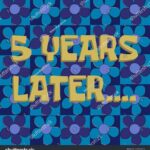
Classic car prices, once soaring to unprecedented heights, are now experiencing a cooling trend, potentially creating a buying opportunity for enthusiasts and collectors. Recent data indicates a price correction in certain segments of the classic car market, suggesting that the rapid appreciation seen during the pandemic era is moderating.
The classic car market, like many other sectors, witnessed a surge in demand and prices during the COVID-19 pandemic. Stimulus checks, increased savings due to reduced travel and entertainment expenses, and a desire for tangible assets fueled a buying frenzy. However, as the economy normalizes, interest rates rise, and inflation persists, the market is recalibrating.
“The market is definitely undergoing a correction,” said a market analyst at Hagerty, a company specializing in classic car insurance and valuation, in a recent market report. “We’re seeing a shift from a seller’s market to a more balanced one, where buyers have more negotiating power.”
Several factors contribute to this shift. The increasing cost of borrowing money due to rising interest rates is dampening enthusiasm for big-ticket purchases like classic cars. Moreover, as people return to pre-pandemic spending habits, disposable income available for discretionary purchases has decreased. Additionally, the supply of classic cars is gradually increasing as some collectors decide to cash in on their investments after the significant price gains of the past few years.
While the overall market is cooling, not all classic cars are experiencing the same degree of price decline. Cars in exceptional condition, with documented provenance and rare features, continue to hold their value. However, more common models or those with condition issues are seeing the most significant price reductions. The market remains highly segmented, with prices varying significantly based on factors such as make, model, year, condition, and historical significance.
“The best cars, the truly exceptional examples, are still commanding top dollar,” the Hagerty analyst noted. “But the cars that were being bid up to unrealistic levels during the peak of the market frenzy are now seeing prices come back down to earth.”
Experts advise prospective buyers to conduct thorough research, carefully inspect the cars they are interested in, and negotiate prices accordingly. With patience and due diligence, it may be possible to find a classic car at a more reasonable price than was possible just a year or two ago. The market correction presents an opportunity for enthusiasts to acquire their dream cars at potentially more attractive valuations.
Understanding the Recent Boom and Bust Cycle
The classic car market’s recent trajectory mirrors trends observed in other collectible asset classes, such as art, rare wines, and luxury watches. The common denominator has been the influx of discretionary capital and the search for alternative investments during periods of economic uncertainty and low interest rates. As traditional investments like stocks and bonds offered lackluster returns in the wake of the 2008 financial crisis, investors sought out tangible assets that could potentially appreciate in value. This trend accelerated during the pandemic, fueled by government stimulus programs and changes in consumer behavior.
However, the tide has turned. Rising interest rates, aimed at curbing inflation, have made borrowing more expensive, reducing the attractiveness of leveraged investments. Moreover, the reopening of economies and the resumption of pre-pandemic spending patterns have diverted capital away from collectible assets. The resulting market correction has brought valuations back in line with historical norms.
Specific Segments Experiencing Price Corrections
While the classic car market as a whole is experiencing a cooling trend, certain segments are seeing more pronounced price corrections than others. Cars that were particularly popular during the pandemic-induced buying frenzy are now experiencing some of the largest price declines. These include:
- Late-model classics: Cars from the 1980s and 1990s that were considered “future classics” saw significant price appreciation during the pandemic. However, as interest rates rise and the novelty wears off, these cars are now experiencing price corrections.
- Resto-mods: Classic cars that have been modernized with updated engines, transmissions, and other components were also popular during the recent boom. However, some buyers are now questioning the value of these modified cars, leading to price declines.
- Cars in average condition: Cars that are not in pristine condition or lack documented provenance are seeing the most significant price reductions. Buyers are becoming more discerning and are less willing to pay top dollar for cars with flaws.
Cars Holding Their Value
Despite the overall market correction, certain types of classic cars continue to hold their value or even appreciate in price. These include:
- Rare and historically significant cars: Cars with documented racing history, celebrity ownership, or limited production numbers continue to command premium prices. These cars are considered blue-chip investments and are less susceptible to market fluctuations.
- Cars in concours condition: Cars that have been meticulously restored to their original factory specifications and are in pristine condition continue to attract high prices. These cars are often showcased at prestigious Concours d’Elegance events and are highly sought after by collectors.
- Pre-war classics: Cars from the pre-World War II era, such as Duesenbergs, Packards, and Rolls-Royces, remain highly desirable among collectors due to their rarity, craftsmanship, and historical significance.
Navigating the Current Market
For prospective buyers, the current market conditions present both opportunities and challenges. While prices are generally lower than they were a year or two ago, it is still important to conduct thorough research, carefully inspect the cars they are interested in, and negotiate prices accordingly. Here are some tips for navigating the current classic car market:
- Do your research: Before making an offer on a classic car, research its market value using online valuation tools and auction results. Consider the car’s condition, provenance, and rarity when assessing its value.
- Inspect the car thoroughly: Have the car inspected by a qualified mechanic or classic car specialist before making a purchase. Look for signs of rust, damage, or deferred maintenance.
- Negotiate the price: Don’t be afraid to negotiate the price with the seller. The current market conditions favor buyers, so you may be able to get a better deal than you would have a year or two ago.
- Be patient: Don’t rush into a purchase. Take your time to find the right car at the right price.
- Consider financing options carefully: If you need to finance the purchase of a classic car, shop around for the best interest rates and terms. Be aware that interest rates are currently higher than they were a few years ago.
The Long-Term Outlook
While the classic car market is currently experiencing a correction, the long-term outlook remains positive. Classic cars are tangible assets that offer a unique blend of historical significance, aesthetic appeal, and investment potential. As long as there are enthusiasts who appreciate these cars, the market will continue to thrive.
However, the market is likely to become more sophisticated and discerning in the years ahead. Buyers will increasingly demand transparency, documentation, and authentication. Cars with documented provenance, exceptional condition, and historical significance will continue to command premium prices, while those lacking these attributes may struggle to maintain their value.
Expert Opinions and Analysis
Industry experts suggest that the market normalization is healthy and necessary for the long-term sustainability of the classic car market. The rapid price appreciation seen during the pandemic was unsustainable, and the current correction is bringing valuations back in line with historical norms.
“This is a natural correction,” said a classic car appraiser in a recent interview. “The market got overheated during the pandemic, and now it’s cooling off. This is actually a good thing for the long-term health of the market.”
Another expert noted that the current market conditions present an opportunity for enthusiasts to acquire their dream cars at more reasonable prices. “If you’ve been waiting for the right time to buy a classic car, now may be the time,” he said. “Prices are down, and there are some great deals to be had.”
The Role of Auctions
Classic car auctions play a significant role in the market, providing a platform for buyers and sellers to connect and establish prices. Auction results can provide valuable insights into market trends and valuations.
In recent months, auction results have reflected the overall cooling trend in the market. While some high-profile cars have still commanded top dollar, the average sale price has declined, and the sell-through rate has decreased. This indicates that buyers are becoming more cautious and selective.
However, auctions remain an important source of information and a valuable tool for both buyers and sellers. Prospective buyers can use auction results to gauge market values and identify potential buying opportunities. Sellers can use auctions to reach a wide audience of potential buyers and achieve the best possible price for their cars.
Conclusion
The classic car market is currently experiencing a correction after a period of unprecedented growth. While this may be concerning for some sellers, it presents an opportunity for buyers to acquire their dream cars at more reasonable prices. By conducting thorough research, carefully inspecting the cars they are interested in, and negotiating prices accordingly, enthusiasts can navigate the current market and potentially find a great deal. The long-term outlook for the classic car market remains positive, as these cars continue to offer a unique blend of historical significance, aesthetic appeal, and investment potential.
Frequently Asked Questions (FAQs)
1. Why are classic car prices dropping?
Classic car prices are dropping due to several factors, including rising interest rates, which make financing more expensive; a decrease in disposable income as people return to pre-pandemic spending habits; and an increase in supply as some collectors decide to sell their cars after recent price gains. As one market analyst at Hagerty stated, “We’re seeing a shift from a seller’s market to a more balanced one, where buyers have more negotiating power.” The market is undergoing a correction after a period of unsustainably high prices during the pandemic.
2. Is now a good time to buy a classic car?
Potentially, yes. The current market correction could present a buying opportunity for those who have been waiting for prices to come down. However, it’s crucial to conduct thorough research, inspect cars carefully, and negotiate prices effectively. As experts have noted, “If you’ve been waiting for the right time to buy a classic car, now may be the time… Prices are down, and there are some great deals to be had.” It’s essential to be patient and not rush into a purchase.
3. Which types of classic cars are experiencing the biggest price drops?
Late-model classics (cars from the 1980s and 1990s), resto-mods (classic cars with modern upgrades), and cars in average condition are experiencing some of the most significant price declines. These were popular during the pandemic-induced buying frenzy, but their prices are now correcting as the market normalizes.
4. Are all classic cars losing value?
No, not all classic cars are losing value. Rare and historically significant cars, cars in concours condition (pristine, restored condition), and pre-war classics continue to hold their value or even appreciate. These cars are considered blue-chip investments and are less susceptible to market fluctuations.
5. What should I do if I’m considering selling my classic car?
If you’re considering selling, it’s important to be realistic about current market values. Research recent auction results and online valuations to get an accurate assessment of your car’s worth. Consider having your car professionally inspected and detailed to maximize its appeal to potential buyers. Be prepared to negotiate on price, as the market is now more favorable to buyers.









